It can be hard– if not impossible– to accurately determine a cat’s personality if you’re adopting from a shelter (which we hope you are doing). Cats are territorial creatures by nature and their personalities often change under the stress of living in a shelter with so many other cats. Understanding a cat’s personality, though, is a critical part of determining whether a certain cat would be a good fit for your home, family, and lifestyle.
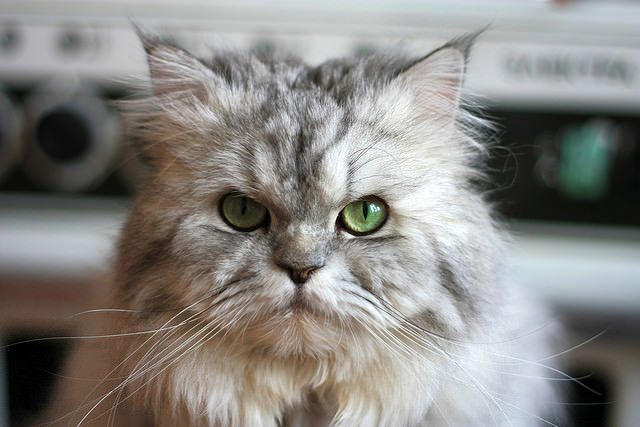
Image: Andrey @ Flickr
Talking to the shelter staff and volunteers can often give you a deeper understanding of a specific cat’s temperament. Not only do the shelter workers interact with the cats every day, but they often have access to each cat’s history and medical records, which can give you clues about a cat may thrive (or not) in your home.
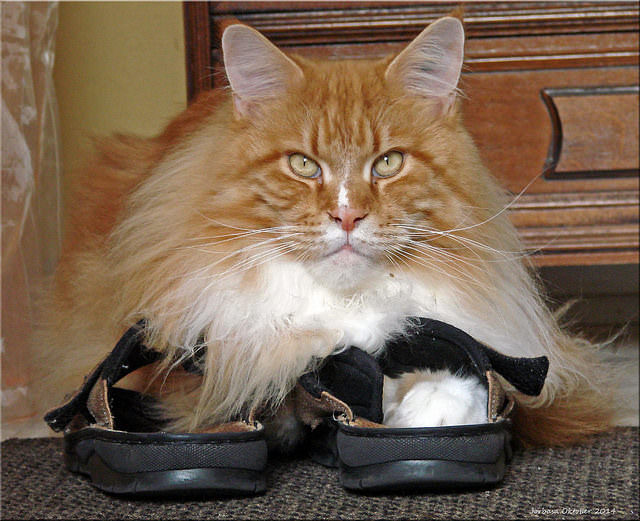
Image: Jorbasa Fotografie @ Flickr
Kit Jenkins, the program director for PetSmart Charities, has another theory for determining a cat’s personality. Jenkins, who has over 20 years of hands-on animal shelter experience, believes we can glean important clues about a cat’s personality by simply observing the shape of its face. Her theory is rooted (at least loosely) in science, since hormones can affect a cat’s personality and they also play a ket role in influencing bone structure.
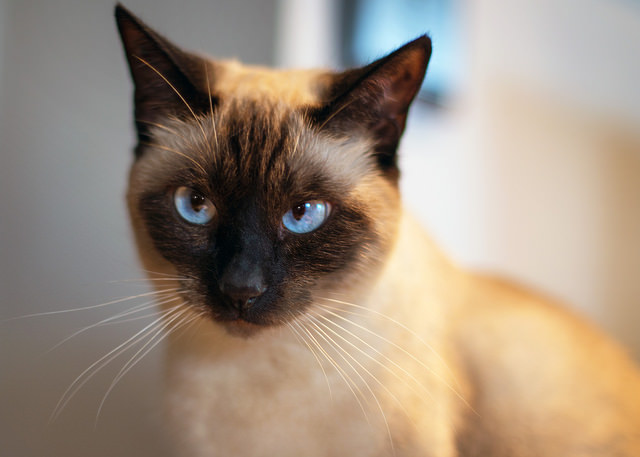
Image: Robert Couse-Baker @ Flickr
Face shape, of course, can’t tell the full story. A cat’s personality will be largely determined by her life experiences and the baseline personality traits of her breed (though breed characteristics aren’t often a dependable reference in shelters, where most cats are “mutts”). Jenkins recognizes that her theory isn’t cut and dry but her studies suggest that noting a cat’s facial structure may simply help give potential adopters more information.
Cat faces usually fall into one of three basic shapes– round, triangular, and square– each with it’s own set of personality traits. What happens when we put Jenkin’s theory to the test? Does it hold water? I rounded up three cats– one with each of the three facial structures– to see how their respective personalities compare to her theory. Here are her ideas, compared to real-life cats:
Square
Square faces are typical in big, solid cats like Maine Coons. According to Jenkins, square faced kitties tend to be the “retrievers of the cat world” and are very affectionate cats who love to cuddle and head-butt their friends.
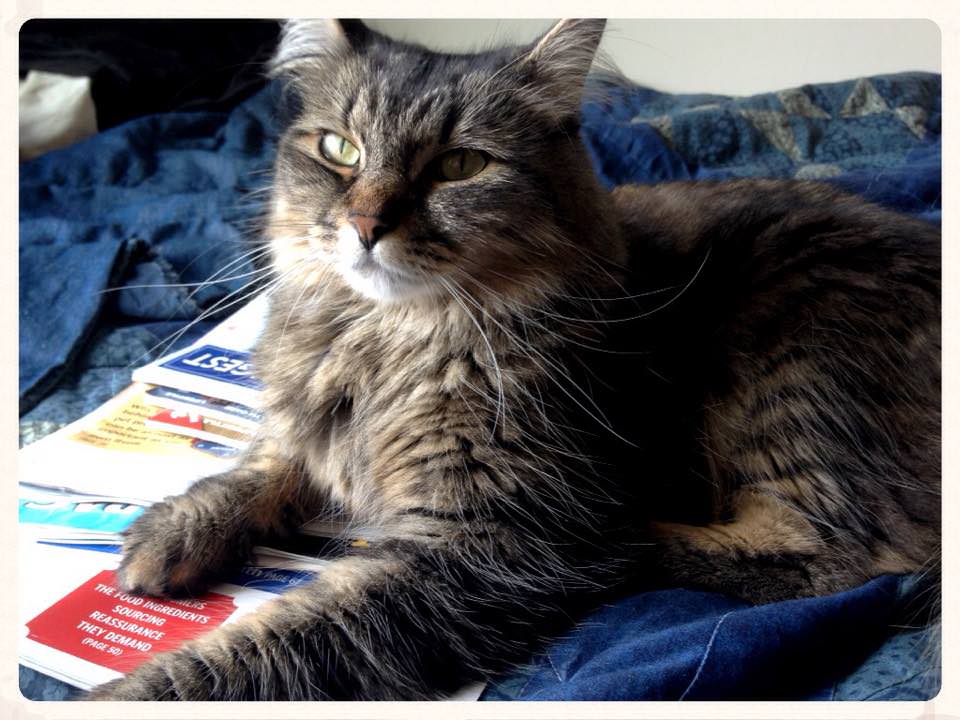
My cat Nora is a stereotypical square-faced Maine Coon in many ways– she’s large, muscular, and chirpy. I appreciate that Jenkins calls these cats the “retrievers of the cat world”, since Nora loves to play fetch! She does love to head-butt but her affection is very guarded and on her own terms. She doesn’t like to cuddle, but she does love to “make biscuits” on me as long as I don’t touch her very much while she does it. If I try to cuddle her, she will bolt. This may, however, be because Nora is still fairly young, kitten-ish, and high energy. Perhaps she’ll mellow out and become more cuddly as she gets older. *fingers crossed*
Round
Round faces are found on Persian and Burmese breeds and are often accompanied by equally-round eyes, heads, and bodies. Jenkins deems round faced cats to be submissive, easily spooked, and relatively low-energy (often preferring to nap on your lap rather than run laps around the house). Round faced cats are often very gentle and affectionate towards people they trust.
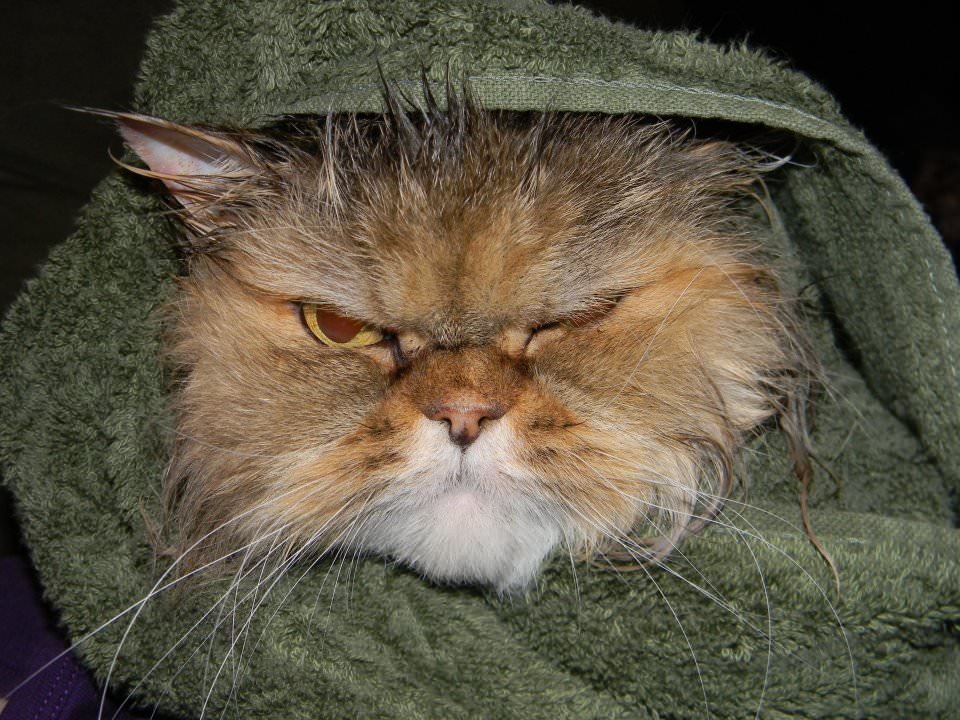
My friend and former neighbor, Soph, is a lovely round-faced Persian kitty. Other than the occasional post-poop sprint around the house, Soph is chill and loves to lounge on her human mom’s lap. She can be easily spooked sometimes, but is comfortable and affectionate with her friends and family.
Triangular
Triangular faces that narrow at the nose are often found on Siamese or Cornish Rex cats and may come with disproportionately large ears. These sleek, angular cats do well in active homes and are generally very energetic, curious and clever. They also tend to be very vocal.
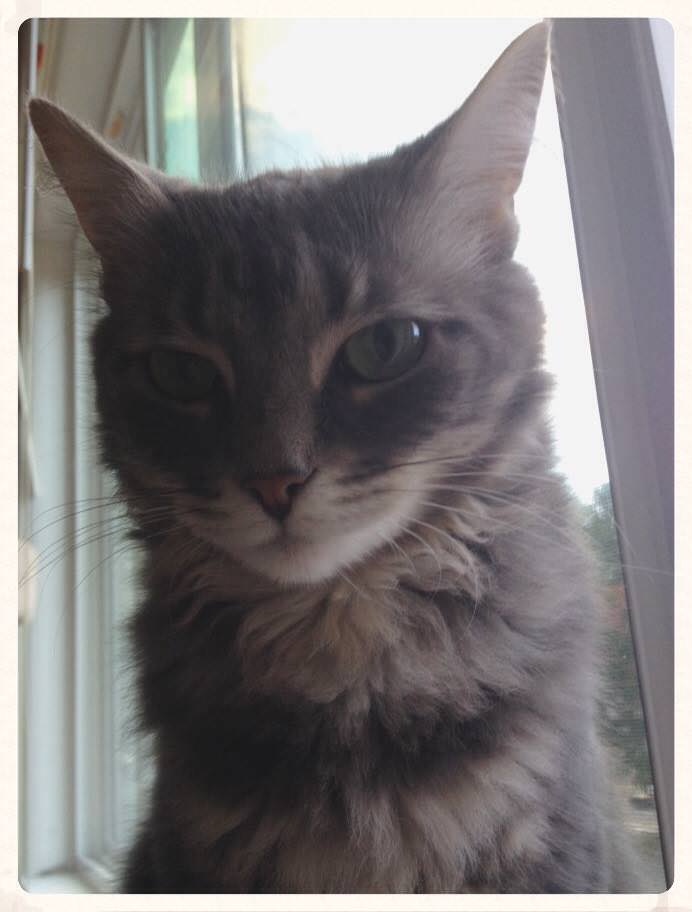
My cat Ida is a mutt, as far as I can tell, but definitely has a sleek and angular face and body (but she doesn’t have disproportionately large ears). She’s less energetic than her square-faced sister, Nora, and infinitely more affectionate and cuddly. She’d never leave my lap (or shoulder) if she didn’t have to. Jenkins’ theory that triangular-faced cats are curious and clever match up with Ida, as well as the claim that they are vocal.
While Jenkins’ theory doesn’t seem to completely match up across the board, it may help add a new dimension to help us determine what we can expect from the personalities of unfamiliar cats. Finding creative ways like this to determine a cat’s temperament will hopefully help us make adoption decisions that’ll result in good human-cat matches that’ll result in many, many years of purring bliss.
